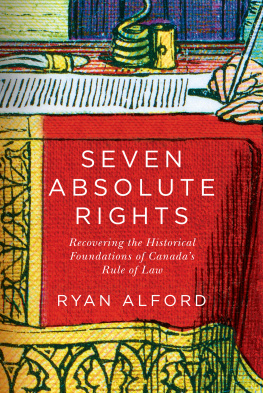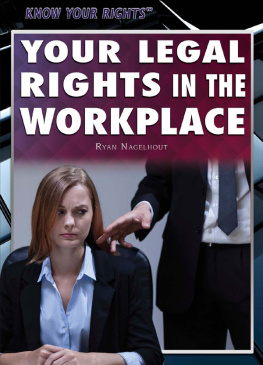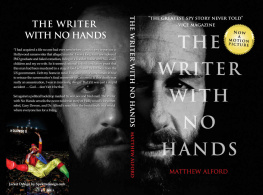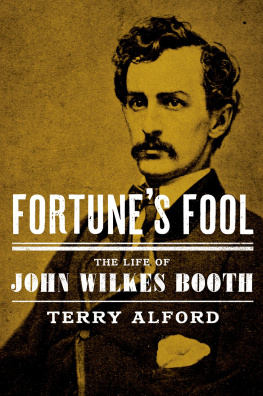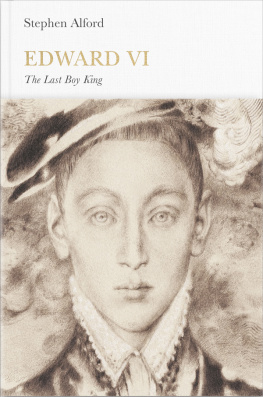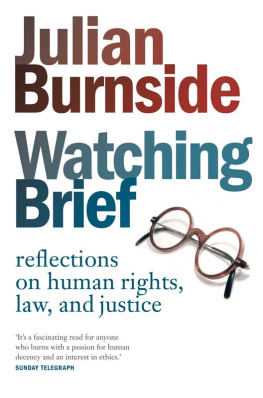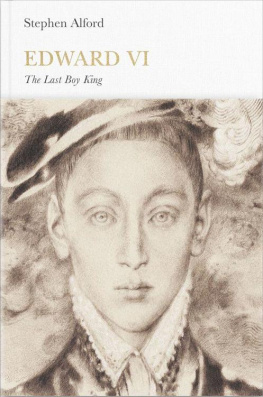
SEVEN ABSOLUTE RIGHTS
Seven Absolute Rights
Recovering the Historical Foundations of Canadas Rule of Law
RYAN ALFORD
McGill-Queens University Press
Montreal & Kingston London Chicago
McGill-Queens University Press 2020
ISBN 978-0-2280-0078-5 (cloth)
ISBN 978-0-2280-0222-2 (ePDF)
ISBN 978-0-2280-0223-9 (ePUB)
Legal deposit second quarter 2020
Bibliothque nationale du Qubec
Printed in Canada on acid-free paper that is 100% ancient forest free (100% post-consumer recycled), processed chlorine free
We acknowledge the support of the Canada Council for the Arts.
Nous remercions le Conseil des arts du Canada de son soutien.
Library and Archives Canada Cataloguing in Publication
Title: Seven absolute rights : recovering the historical foundations of Canadas rule of law / Ryan Alford.
Names: Alford, Ryan Patrick, 1975 author.
Description: Includes bibliographical references and index.
Identifiers: Canadiana (print) 20200179896 | Canadiana (ebook) 2020017990X | ISBN 9780228000785 (cloth) | ISBN 9780228002222 (ePDF) | ISBN 9780228002239 (ePUB)
Subjects: LCSH: Rule of lawCanada. | CSH: Constitutional historyCanada
Classification: LCC KE4238 .A44 2020 | LCC KF4483.R75 A44 2030 | DDC 340/.11dc23
This book was typeset by True to Type in 10.5/13 Sabon
Seven Absolute Rights is dedicated to the memory of the late Lord Chief Justice of England and Wales Thomas Bingham and the late Chief Justice of Canada Antonio Lamer; without their peerless judicial and scholarly work on the subject of the rule of law, this book would not have been possible.
Exegerunt monumenta aere perennius.
Contents
Preface
In moments of crisis, we rediscover both the importance and the complexity of the rule of law; when governments begin to violate constitutional norms at such a fundamental level that it is difficult to point out exactly how this offends against the letter of the law, the concept becomes indispensable yet it remains vexing. An individual nations constitution may or may not contain explicit requirements that its government be bound by the laws or that it abide with the orders of the judiciary to stop engaging in conduct that violates the constitution; whether these requirements are made explicit or remain unstated, it is impossible to imagine constitutional governance without such basic obligations. When rights that were formerly thought so fundamental as to become effectively invisible are in jeopardy, the role of the constitutional historian is, as I take it, to recover the meaning, importance, and scope of these principles from the legal and political context of the time in which the explicit texts which we ordinarily rely upon exclusively were written. This is not an easy task.
The rules of chess do not specifically forbid ending the game by knocking over the board. Similarly, constitutions rarely forbid every possible means of making the government unaccountable to the laws. The Constitution of the United States does not specify that a president cannot pardon his coconspirators in order to avoid being prosecuted. When presidents merely threatened to take these actions, they took that nation to the brink of constitutional crisis and brought questions about the rule of law into everyday public conversation. No such constitutional crisis has flagged similar concerns in Canada during the twentieth century, although it increasingly appears that this is overdue.
To speak of the rule of law, then, is to search for principles that underlie a nations law and is, therefore, to acknowledge the principle no written constitution can be entirely self-contained, whether in the United States or here in Canada. As this book is aimed at correcting the misconception that all our constitutional rights can be found in the Canadian Charter of Rights and Freedoms, it is pertinent to consider the preamble to the Charter, an introductory statement to that documents that states (in full): Whereas Canada is founded upon principles that recognize the supremacy of God and the rule of law. The quasi-divine status accorded to the rule of law in this official creation myth of the Canadian state gives us an idea of the importance of this concept. Crucially, the Charters intimation that Canadas rule of law is older than its constitution is the first indication that the rule of law in this country does not merely serve to prevent the government from circumventing the rules that constrain its authority. As this volume will demonstrate, ascribing that function to it would reduce Canadas rule of law to one that is merely formal, insofar as it would allow the government to do whatever it wishes, as long as it complies with the letter of the law including new laws passed during emergencies when doing so. Rather, as I will argue throughout this volume, the rule of law also limits what the government can do, even in the most dangerous emergency. Both of these functions are important in times of crisis, as the recent history of the United States demonstrates, and as our own recent history of controversial emergency powers and antiterrorism legislation also illustrates, if perhaps not quite so vividly.
My last book (Permanent State of Emergency, 2017) demonstrated that the United States can no longer be considered a rule of law state, as its executive now has the power to violate nonderogable rights with impunity. The concepts that form that standard demonstrate in the abstract what the rule of law is, while the history that I drew upon to demonstrate that this standard was no longer being met illustrates the importance of the rule of law. The first concept is nonderogability. Certain rights are recognized by international law as so important that governments cannot invoke an emergency as a basis for violating them, even if that emergency threatens to destroy the nation. Nazi Germany could not invoke the danger to its national integrity posed by the total war waged by the Allied powers as justification for its crimes against humanity: as every civilized nation recognized that these rights were nonderogable, the Nuremberg Laws could not justify these violations. The second concept is accountability to the laws, sometimes expressed as government under law, or a government of laws and not men. These formulations express the purpose of constitutional government, namely to ensure that no government official becomes so powerful as to be able to break the laws without fear of punishment.
In support of my argument in Permanent State of Emergency, I detailed how, in the sixteen years after the 9/11 attacks, the United States gradually abandoned its constitutional order. By 2017, Americas legal order included unreviewable executive power to authorize indefinite military detention and extrajudicial killing, even of its own citizens and within the United States. The fact that its president had yet to use those powers was considerably less comforting after it became apparent that the country was one election away from being ruled by an unprincipled strongman who might embrace every opportunity to become unaccountable to the law. My concern that the rule of law was in peril in the United States was sparked by a decision in a court case brought by an American citizen styled Al-Aulaqi v. Obama that sought an order preventing the government from killing him via a drone strike. (I had a very small role in this case, but more pertinent is the large part it played in catalyzing the definition of the rule of law I developed in
Next page
